
Cherry Eye — ACVO Public
In layman's terms, cherry eye means that a dog's third eyelid, located underneath the lower eyelid, has prolapsed out of the protected position it would normally occupy. This prolapse exposes the delicate third eyelid and the tear gland it contains to dry air and other environmental elements.
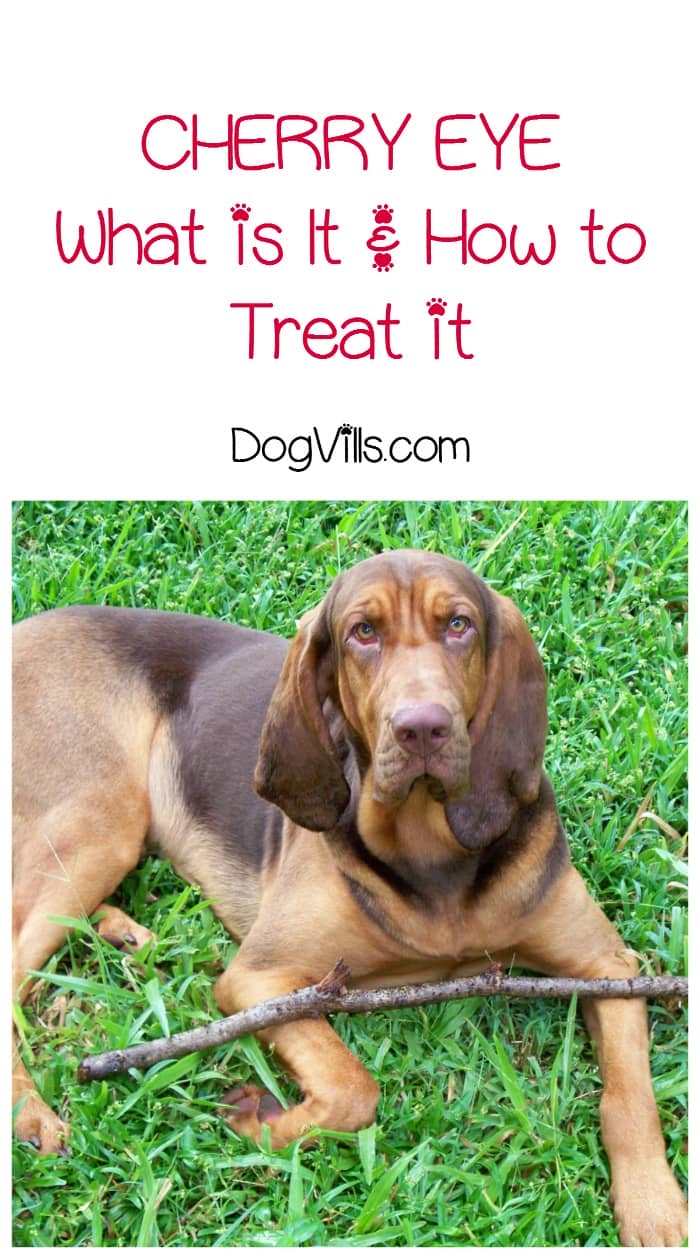
What is Cherry Eye in Dogs & How Do You Treat It? DogVills
What Is a Cherry Eye? A "cherry eye" is what veterinarians also refer to as a prolapsed gland of the third eyelid. Every third eyelid contains a gland that resides in the deeper part of the membrane, anchored by a supporting flap of cartilage and hidden under the lower lid.

Köpeklerde Kiraz Göz (Cherry Eye) Hastalığı
Cherry eye is a disorder of the nictitating membrane (NM), also called the third eyelid, present in the eyes of dogs and cats. [1] Cherry eye is most often seen in young dogs under the age of two. [2]

Cherry Eye in Dogs Causes, Symptoms, Treatment & Prevention Cherry eye in dogs, Dogs, Dog
Cherry eye is een aandoening van de traanklier van het derde ooglid van de hond. De oogontsteking komt meestal voor in het eerste levensjaar, vooral bij dogachtigen, zoals de Franse en de Engelse Bulldog. Honden kunnen er veel last van hebben, maar de aandoening is goed te behandelen.

Cherry Eye in Dogs Great Pet Care
Cherry eye (prolapse of the nictitans gland) is when the gland inside the third eyelid prolapses (pops out). Cherry eye is uncomfortable, and can lead to other problems, such as conjunctivitis and corneal ulcers. Cherry eye can affect any breed of dog, but is especially common in certain pedigrees such as French Bulldogs, Pugs, Great Danes, and.
Cherry Eye Veterinary Ophthalmic Consulting
"Cherry eye" or inflammation and prolapse of the nictitating tear gland is common in young dogs, and surgical re‐positioning of the gland beneath the nictitans is recommended. Some of these dogs are still prone to keratoconjunctivitis sicca (KCS) in the future, so continued monitoring is recommended.

Cherry Eye In Dogs What It Is And How To Treat It Kingsdale Animal Hospital
Cherry eye is the common name for prolapsed gland of the third eyelid, meaning the gland has moved (prolapsed) out of its proper position. While humans only have two eyelids, dogs have three. Their third eyelid is located in the lower inner corner of the eye (close to the muzzle). This eyelid is made of conjunctiva (a thin, protective membrane.
Foto_honden Oogdierenartsen Kleidal
1 Red, swollen tissue on the corner of the eye. If you notice a small, pinkish-red bulge on the inner corner of one or both of your dog's eyes, this is most likely cherry eye. The bulging tissue may only be visible sometimes. In other cases, the tissue may cover a large portion of your dog's eye and remain visible at all times. [2] 2 Watery eyes.
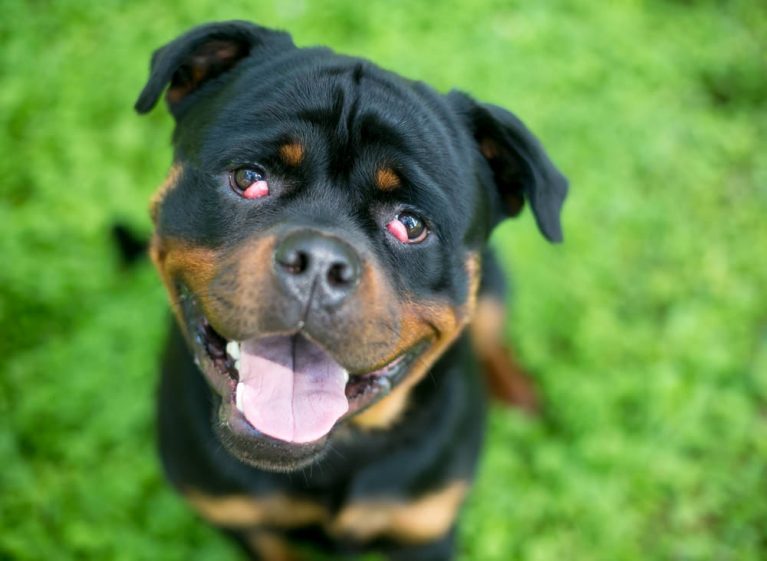
Cherry Eye in Dogs Causes, Symptoms & Treatment Options Full Guide
1. The "Cherry" in Cherry Eye = Prolapsed Tear Gland So, what exactly is cherry eye? The red swelling is a gland that isn't normally seen because it sits snuggled up on the underside of the third eyelid. This gland's job is to produce tear fluid to keep the eye moist and help flush away dust.

Dog Cherry Eyes Removed Forever Surgery and Treatment Options YouTube
What Is Cherry Eye? In the normal dog eye, you may occasionally get a glimpse of the third eyelid. It may be visible when your pet sleeps or wakes from a nap. Some owners may notice it after their pet has had surgery and are recovering from the anesthesia.

Dog at home with cherry eye
This condition is called "cherry eye" because it looks like your dog has a cherry in the corner of its eye due to the red bump the prolapsed gland causes. Cherry eye can impact breeds of all kinds, and it can appear in only one or both eyes. This article will discuss cherry eye in dogs, its causes, symptoms, treatments, and more.
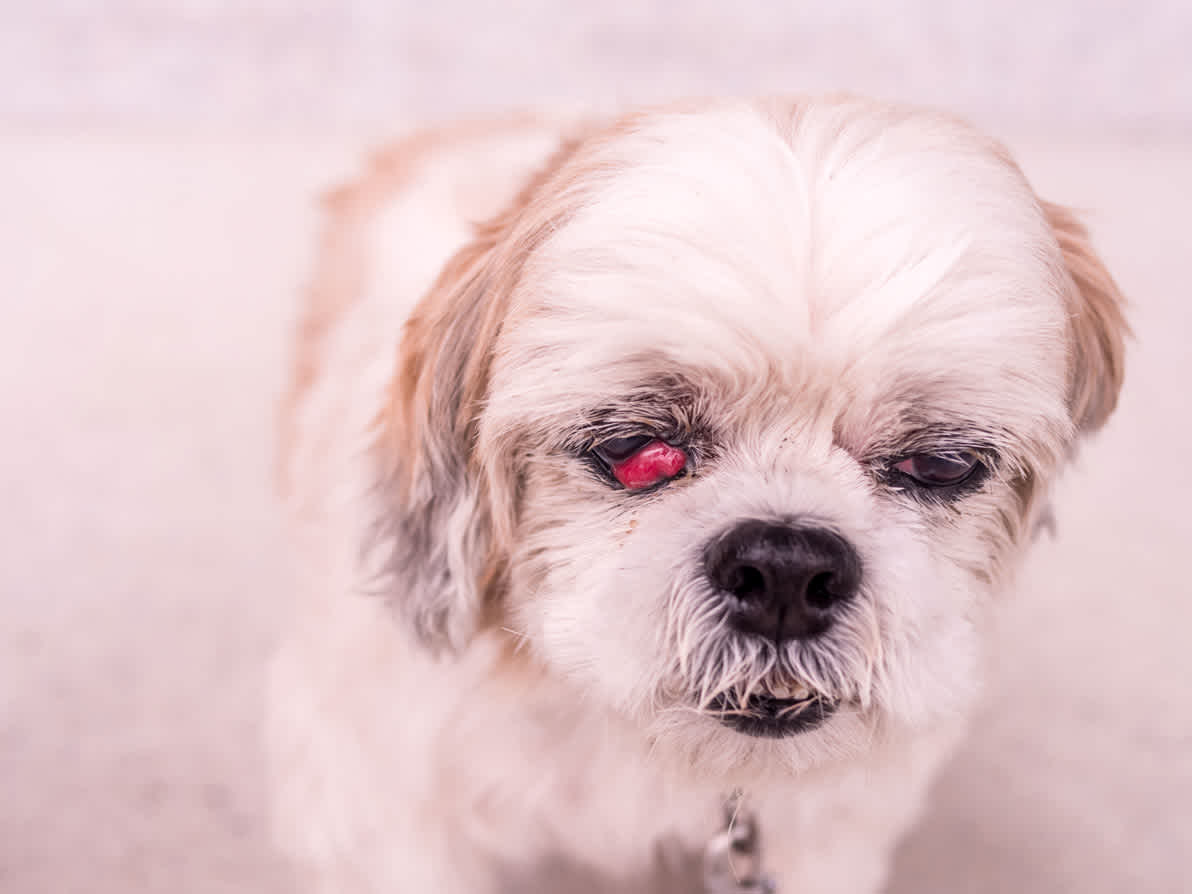
Cherry Eye in Dogs Small Door Veterinary
Cherry eye is the result of a prolapsed nictitating membrane, also known as the third eyelid. This membrane serves as a protective layer for your dog's eye and contains a tear gland.

Cherry Eye in Dogs Great Pet Care
What is a cherry eye? Dogs and cats have additional eyelids called the third eyelids. The third eyelid is a membrane which sits just inside of the lower eyelid. Another name for the third eyelid is the nictitating membrane (nictitans). There is a gland associated with the third eyelid which typically resides at the base of the third eyelid.
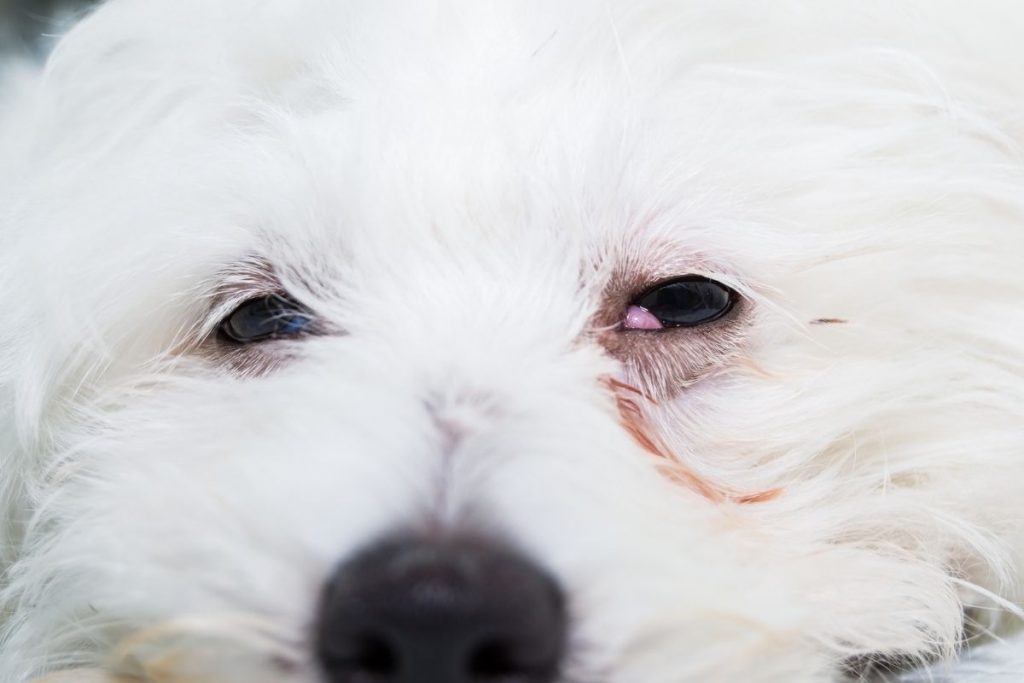
Cherry Eyes in Dogs Can You Identify and Treat It? PetMaximalist
Cherry-eye of kersenoog is een niet levensbedreigende, maar ongemakkelijke oogaandoening bij honden. In this article Neem contact op met een dierenarts Zie je symptomen in dit artikel terug bij je dier? Raadpleeg direct een dierenarts. Vind kliniek Wat is cherry-eye? Heeft je hond last van cherry-eye?
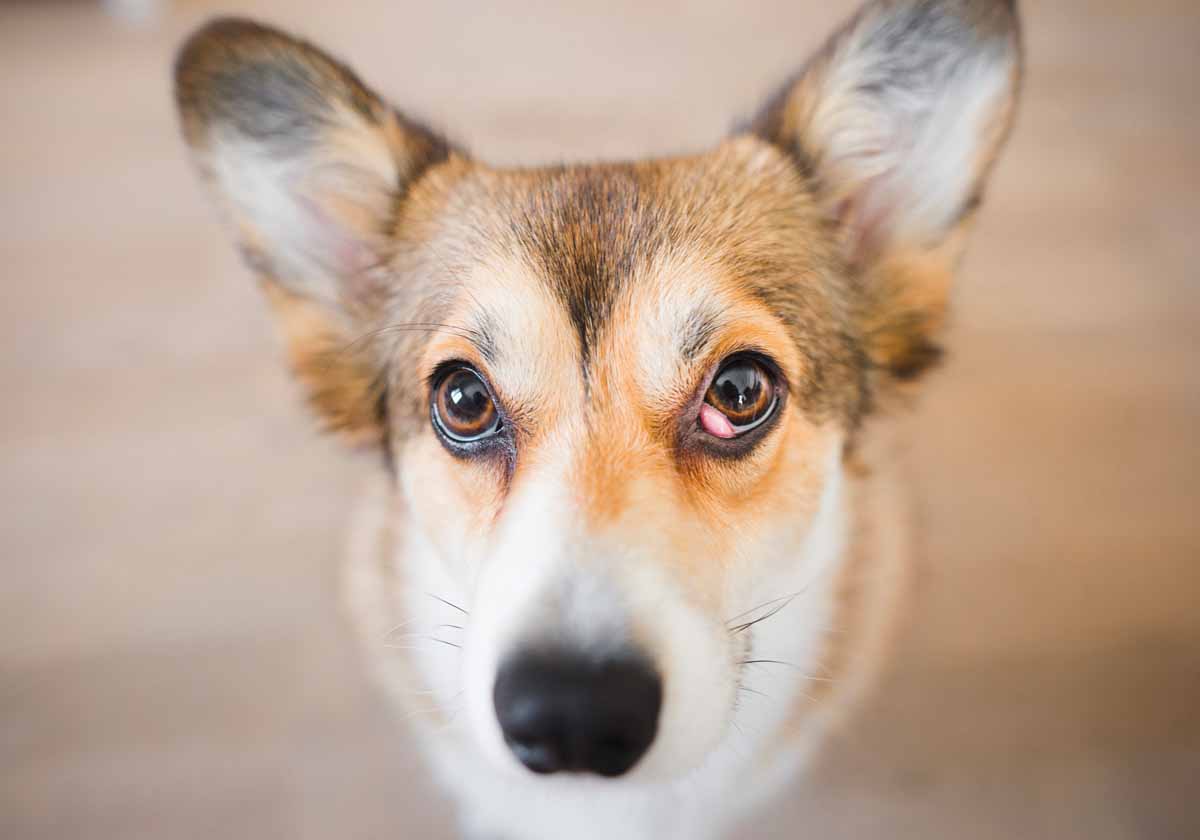
What is Cherry Eye in Dogs, and is it Serious? ElleVet Sciences
Dogs with cherry eyes may have excessive tearing. #3. Rubbing or scratching at the eye. Dogs may paw at or scratch the affected eye due to discomfort or irritation. #4. Conjunctivitis. Cherry eye can lead to swelling of the conjunctiva, the thin layer covering the white part of the eye. #5.

9 Dog Eye and Eyelid Bumps & Lumps [Pictures & Vet Advice]
Symptoms of Cherry Eye in Dogs. When the third eyelid gland pops out of the inner corner of the eye it looks like a small cherry, hence the name "cherry eye". It's easy to spot as a pink or red lump in the inner corner of your dog's eye. You may notice excessive discharge from the affected eye. Your dog may also rub at the eye if the.